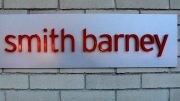The fine print of Charter Communications’ high-speed Internet service says a “small percent of customers will receive lower than advertised speeds.” One attorney general says the problem is actually widespread — “a consistent story of bad performance and a long-term business plan built on deceit.”
New York Atty. Gen. Eric Schneiderman is suing Charter over allegedly false claims of fast Internet speeds by its Spectrum service, formerly known as Time Warner Cable. Charter is the dominant cable provider in Southern California.
Although the lawsuit only pertains to Spectrum’s roughly 2.5 million New York Internet customers, Schneiderman’s press secretary, Amy Spitalnick, told me the issues cited in the complaint “could very well be found with providers across the country.”
The lawsuit alleges that since 2012, Time Warner Cable promised Internet subscribers a “fast, reliable connection,” but customers were “dramatically shortchanged on both speed and reliability.” A 16-month investigation found that wired Internet speeds were up to 70% slower than advertised, while Wi-Fi speeds were as much as 80% slower.
The complaint is based on “internal corporate communications and hundreds of thousands of subscriber speed tests.” It alleges that “Spectrum-TWC executives knew that the company’s hardware and network were incapable of achieving the speeds promised to subscribers, but nevertheless continued to make false representations about speed and reliability.”
For example, the suit says the company leased “to a large number of its subscribers older-generation modems and wireless routers that it knew were incapable of achieving the promised Internet speeds.” It also allegedly failed to make network improvements that could have boosted customers’ Internet access.
The complaint seeks an unspecified amount in restitution for New York consumers, “as well as appropriate injunctive and equitable relief to end Spectrum-TWC’s long-standing deceptive practices.”
In a statement, Charter said the company is “disappointed” by the lawsuit but notably did not deny any of the allegations.
Rather, Charter patted itself on the back for the company’s “significant commitments” and “substantial investments” since the Time Warner acquisition.
“We will continue to invest in our business and deliver the highest quality services to our customers while we defend against these allegations involving Time Warner Cable practices,” the company said.
I asked a Charter spokesman how the New York lawsuit might reflect upon or impact the company’s California operations. He declined to comment.
I can say, though, that I’m a Spectrum customer and I pay for a download speed of 100 megabits per second. I tested my Wi-Fi connection Monday morning and found I was getting just 44 Mbps, or less than half the expected rate.
Some in the telecom business say that’s no surprise. They say Time Warner Cable — and now Spectrum — do the same things in Southern California that they do elsewhere.
“There’s no difference between their policies in New York and Los Angeles,” said Terry Koosed, president of Bel Air Internet, a provider of broadband service to local businesses, apartment buildings, hotels and condos. “It’s no secret in the industry how they operate.”
He said Time Warner Cable routinely promised speeds “up to” a certain level in ads but in reality delivered much slower Internet access. Charter apparently has dropped the “up to” pitch but instead reveals the possibility of slower-than-advertised speed in its fine-print disclosure.
Koosed said Charter’s network faces the same challenge in the Southland that it faces in all large metropolitan areas: The more people in a particular area who are connected, the more congested the service becomes for everyone. Hence slower speeds.
“If you go for a swim and there’s no one else in the pool, great,” Koosed said. “If there’s a thousand other people in the pool, you won’t be swimming anywhere.”
Call your provider and ask if you don’t know how much Internet speed you’re paying for. Then use a free online speed test such as Speedtest.net or Fast.com to see what you’re actually getting.
While business customers routinely receive what’s known in the telecom industry as a system level agreement — that is, a guaranteed Internet speed — residential customers typically make do with whatever they can get from a service provider.
As such, Koosed said, big companies such as Charter, AT&T and Verizon “systematically mislead the residential customer by not giving you what they say they’re going to give you.”
He called this an act of fraud and said an investigation by California authorities is “long overdue.” I agree.
A spokeswoman for state Atty. Gen. Xavier Becerra declined to comment on whether California would follow New York in looking into the matter.
Please visit the source link below to read the entire article.
Source: www.latimes.com



